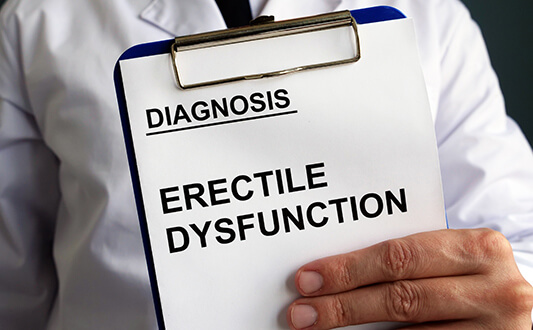Phimosis is the impossibility of retracting the foreskin from around the glans penis. This is a normal physiological condition in young boys, as it protects the penis and the external urethral opening from trauma and infections. As a rule, physiological phimosis goes away on its own during the first few years of a boy's life. In other cases, conventional or even surgical measures are required in order to ensure normal urination and a sexual life in the future. If neglected, the condition causes psychological discomfort as well. Nevertheless, experienced surgeons and urologists can offer a few options that consider both the physical and esthetic aspects.
Content
- Etiological factors and clinical manifestations
- Conventional treatment options
- Surgical treatment
- Best medical care abroad with Booking Health
Etiological factors and clinical manifestations
Physiologic phimosis exists during the first 7 years of a boy’s life or somewhat longer. Normally, it does not affect urination or cause discomfort. During the second year of life, the foreskin usually starts separating from the glans. However, in some children, even physiologic phimosis can lead to the development of infectious complications or inflammation. Treatment is prescribed when a child makes complaints of pain, swelling of the penis, and difficulty urinating (foreskin expands like a balloon when a boy urinates).
A general practitioner or parents may also notice foreskin redness, an unpleasant odor, or atypical discharge. Such signs are indicative of balanitis or balanoposthitis. These are bacterial or fungus infections of the penis and often arise in boys with phimosis due to poor hygiene. Balanitis and balanoposthitis require obligatory therapy.
Phimosis can also be new-onset in older children, teenagers, or young men. In these situations, we talk about acquired, or pathologic, phimosis. The condition develops against the background of:
- skin conditions, including eczema, psoriasis, lichen planus, and lichen sclerosus;
- foreskin infections, including sexual diseases;
- chronic urinary tract infections;
- mechanical injury of the foreskin.
In rare instances, the condition can also arise in elderly men, due to a loss of skin elasticity from age. Pathologic phimosis always requires treatment, as the acquired adhesions between the inner prepuce and glans penis will not dissolve spontaneously.
Conventional treatment options
The main principle of conventional phimosis treatment is caution. Parents or healthcare professionals should never force the foreskin back, as this may lead to paraphimosis developing. Paraphimosis is a medical emergency that arises when the retracted foreskin cannot be moved back. Patients with paraphimosis require urgent help, as the tight foreskin reduces the blood flow in the penis. In addition, forcing the foreskin back leads to rupturing and subsequent scarring, this causes fear and psychological discomfort.
Topical steroids in the form of an ointment or cream are often applied for alleviating foreskin expansion and easier separation of the adhesions between the prepuce and glans penis. Applied twice daily for a prolonged time period (at least one month), topical steroids avoid the need for surgical intervention for a number of patients. The most widely used topical steroid is triamcinolone (the trade-names are Kenalog and Triderm). According to the clinical trials results, application of topical steroids is a safe and effective option for boys over 3 years old.
In older patients, it is recommended to use lubricants and condoms while having sex. Condoms fix the foreskin and lubricants make sexual intercourse more comfortable. This also serves as a paraphimosis preventive measure.
The concomitant therapy for balanitis or balanoposthitis includes antibiotics (penicillin or erythromycin) or antifungal remedies (miconazole or clotrimazole). The treatment regimen depends on the results of the diagnostics, i.e. microscopy of swabs from the surface of the penis and from the urethra.
Surgical treatment
Treatment of phimosis with circumcision is the most widespread surgical option. During the circumcision, the entire foreskin, or part of it, is removed. A full circumcision is typically performed in infancy, and a partial circumcision may be carried out on a patient of any age. It should be mentioned that a full circumcision has zero risk of disease relapse, while after a partial one, up to 30% of males experience recurrent symptoms.
Clinics of countries with developed healthcare systems offer two types of anesthetic for circumcision. These are general anesthetic and local anesthetic. General anesthetic is typically chosen for children. It has more risks than a local one but allows patients to avoid psychological and emotional trauma. Local anesthetic is chosen for older patients.
Results from a number of clinical trials have demonstrated that circumcised males receive the same satisfaction from their sexual life as uncircumcised males. Circumcised men may only have difficulties during sexual intercourse when the surgery is performed at an adult age.
Another possible intervention is surgical adhesiotomy, which is the dissection of natural or pathologic adhesions between the foreskin and glans penis. It is more sparing and safe but an adhesiotomy is connected with a higher risk of relapse, as the preserved foreskin may adhere to the glans penis again. Thus, circumcision remains the first-line option for the majority of patients.
Best medical care abroad with Booking Health
While conservative therapy does not require special technical skills and is connected with few possible complications, surgical interventions are still performed in specialized and highly equipped healthcare institutions. German clinics offer a full range of interventions, as well as follow-up care and secondary prevention.
Those patients who do not have experience of treatment in Germany or other foreign countries, will benefit from the comprehensive assistance of the medical tourism provider, Booking Health, the company helps by:
- selecting the appropriate hospital in Germany or other foreign country (based on the specialization and success rates);
- booking the appointment with the chosen urologist;
- preparing the medical program in advance (consultation, surgical treatment, etc.);
- providing a favorable cost for medical procedures, without overpricing or additional coefficients (saving up to 50%);
- monitoring the treatment program at all stages;
- issuing insurance in case of complications (а coverage of €200,000, valid for 4 years);
- helping buy and forward medicines and medical products;
- communicating with the clinic after the treatment’s completion, receiving and translating the reports;
- controlling invoices and final calculations;
- organizing additional and control examinations;
- offering the highest-level service: booking hotels and tickets, transfer organization;
- offering services of an interpreter and personal medical coordinator while you stay abroad.
Fill in the “send request” form and wait for a call from an experienced patient case manager or medical advisor.
Choose treatment abroad and you will for sure get the best results!
Authors:
This article was edited by medical experts, board-certified doctors Dr. Nadezhda Ivanisova, and Dr. Bohdan Mykhalniuk. For the treatment of the conditions referred to in the article, you must consult a doctor; the information in the article is not intended for self-medication!
Our editorial policy, which details our commitment to accuracy and transparency, is available here. Click this link to review our policies.
Sources:
Read:
Why Booking Health - questions and answers
How to make right decision when choosing the clinic and specialist
7 reasons to trust to the rating of clinics on the Booking Health portal
Don't know where to start?
Contact Booking Health






